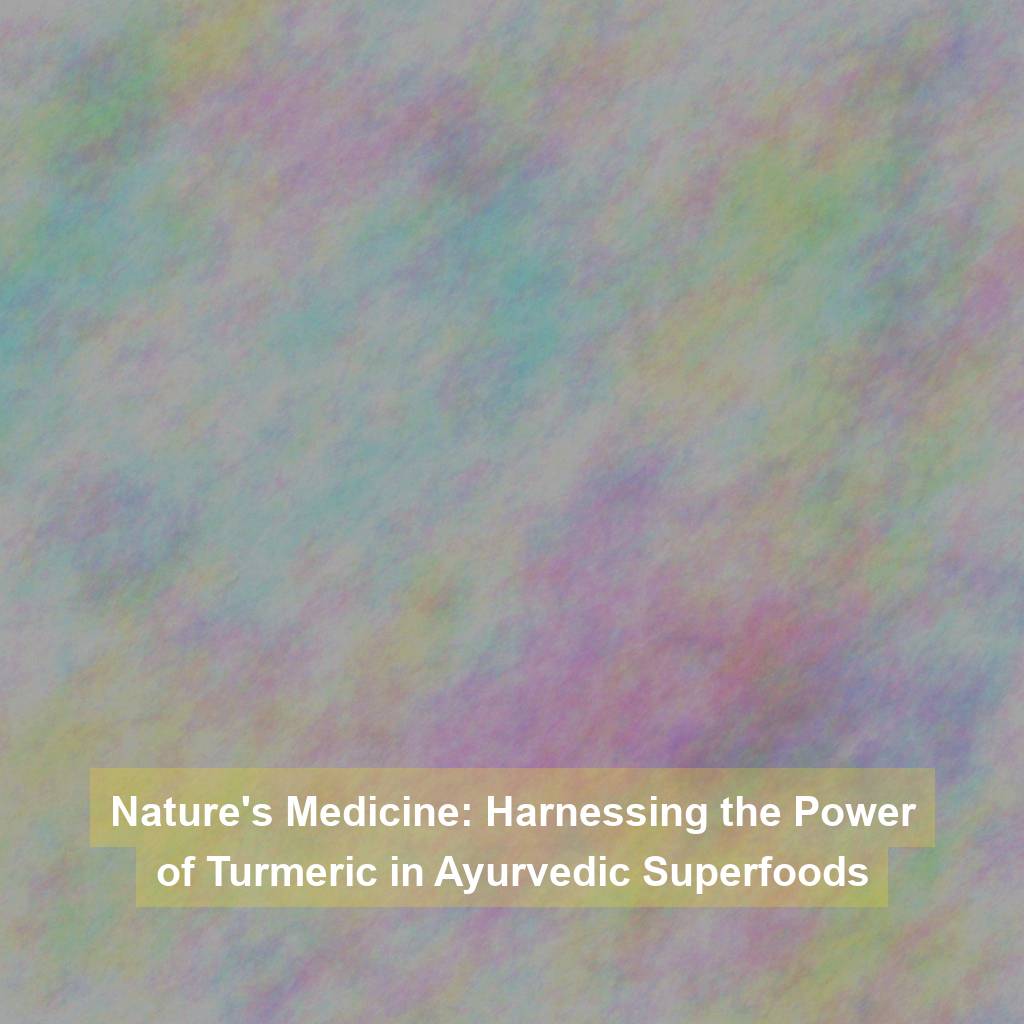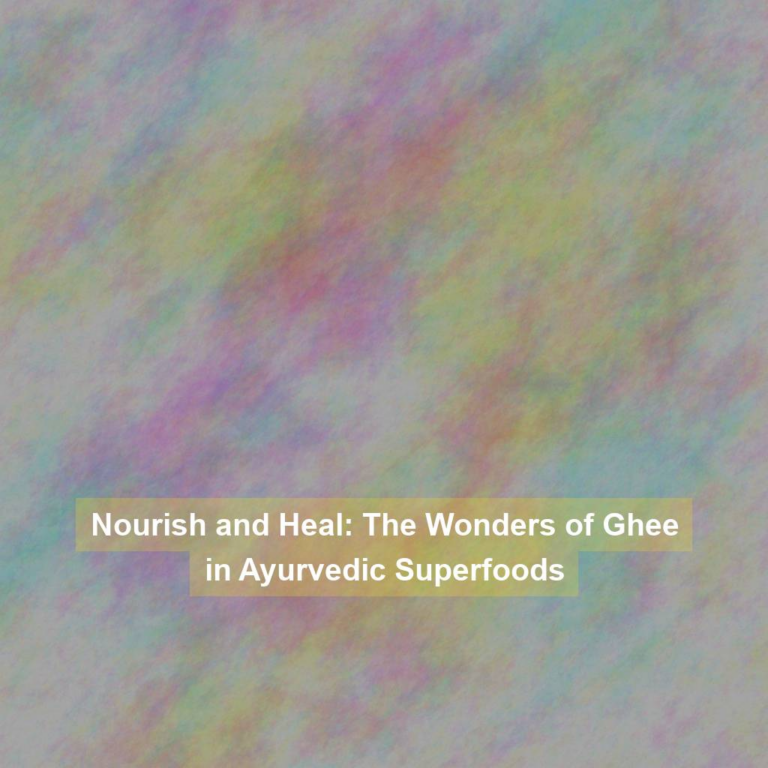You’ve probably heard about the potent power of turmeric, but have you considered its role in traditional Ayurvedic superfoods?
Turmeric, a golden-hued spice, has gained attention for its potential health benefits, but its use in Ayurveda goes back centuries.
From its deep-rooted history to the modern-day scientific research, there’s much to uncover about how turmeric is harnessed in Ayurvedic practices.
So, why has this ancient spice stood the test of time, and what makes it a staple in Ayurvedic superfoods?
The History of Turmeric in Ayurveda
The history of turmeric in Ayurveda dates back thousands of years and holds a significant place in traditional Indian medicine. You mightn’t realize that turmeric, a vibrant golden spice, has been a staple in Ayurvedic practices for centuries.
In Ayurveda, turmeric is revered for its powerful medicinal properties and is considered a key herb for promoting overall well-being. It’s not just a spice; it’s a cornerstone of holistic health in Ayurveda.
The ancient texts of Ayurveda, such as the Charaka Samhita and Sushruta Samhita, document the use of turmeric for its anti-inflammatory, antioxidant, and antimicrobial properties. These texts also highlight turmeric’s role in supporting digestive health, skin care, and joint function.
Over the years, turmeric has been used in various Ayurvedic formulations, or ‘rasayanas’, to promote longevity and vitality. Understanding the historical significance of turmeric in Ayurveda helps us appreciate its enduring value as a medicinal and culinary powerhouse.
The Healing Properties of Turmeric
Harnessing the potent healing properties of turmeric can greatly contribute to your overall well-being and vitality. Turmeric is well-known for its anti-inflammatory, antioxidant, and antimicrobial properties. The active compound in turmeric, curcumin, is responsible for many of its health benefits. It has been shown to reduce inflammation, which is the root cause of many chronic diseases. Additionally, curcumin is a powerful antioxidant that helps protect your body from free radicals and oxidative stress.
Turmeric has also been used in traditional medicine to aid in digestion and liver health. It can help stimulate bile production, which aids in the digestion of fats and the elimination of toxins from the body. Furthermore, turmeric has been found to have potential anti-cancer properties and may help in preventing and treating certain types of cancer.
Moreover, turmeric has been used for centuries in Ayurvedic medicine to promote overall vitality and longevity. It’s believed to support the body’s natural healing mechanisms and improve energy levels. Incorporating turmeric into your diet or taking it as a supplement can be a simple yet effective way to harness its healing properties and support your overall health.
Turmeric in Traditional Ayurvedic Practices
In traditional Ayurvedic practices, turmeric plays a vital role in promoting holistic wellness and vitality. This golden spice has been revered for centuries for its remarkable healing properties. Ayurveda, the ancient Indian system of medicine, considers turmeric to be a powerful herb with diverse medicinal applications. In Ayurvedic practices, turmeric is used to balance the three doshas ‘ Vata, Pitta, and Kapha ‘ which are fundamental to one’s health and well-being.
Turmeric is commonly used in Ayurvedic formulations to support joint health, aid digestion, and promote overall vitality. Its anti-inflammatory and antioxidant properties make it a valuable ingredient for maintaining a healthy metabolism and immune system. In traditional Ayurvedic practices, turmeric is often incorporated into daily rituals such as oil pulling, where it helps to cleanse and purify the mouth and throat.
Furthermore, turmeric is used in Ayurvedic cooking to enhance the flavor of dishes while providing its numerous health benefits. Whether consumed as a spice in food or used in medicinal preparations, turmeric continues to be an integral part of traditional Ayurvedic practices aimed at promoting holistic wellness and vitality.
Modern Scientific Research on Turmeric
Modern scientific research has demonstrated the diverse health benefits of turmeric, shedding light on its potential in various fields of medicine and wellness. Studies have shown that turmeric contains a compound called curcumin, which exhibits potent anti-inflammatory and antioxidant properties. This has sparked interest in its potential applications for conditions such as arthritis, heart disease, and even certain types of cancer.
Researchers have also delved into turmeric’s potential in promoting brain health. Preliminary studies suggest that curcumin may have neuroprotective effects, potentially reducing the risk of neurodegenerative diseases like Alzheimer’s. Additionally, turmeric has shown promise in supporting digestive health, with some studies indicating its potential in managing conditions like irritable bowel syndrome and inflammatory bowel disease.
In the realm of skincare, turmeric has garnered attention for its anti-inflammatory and antimicrobial properties, making it a potential ingredient in natural skincare products. Moreover, ongoing research is exploring turmeric’s role in promoting overall well-being, including its potential as an adjunct therapy for mental health conditions like depression and anxiety. As scientific exploration continues, turmeric’s potential in modern medicine and wellness practices is becoming increasingly evident.
Harnessing Turmeric’s Potential for Wellness
You can unlock the potential wellness benefits of turmeric by incorporating it into your daily routine. Turmeric, with its active compound curcumin, has been shown to have powerful anti-inflammatory and antioxidant properties. Adding a teaspoon of turmeric to your morning smoothie or incorporating it into your cooking can help reduce inflammation in the body, which is linked to various chronic diseases. Its antioxidant properties also aid in neutralizing harmful free radicals, potentially lowering the risk of certain conditions.
Additionally, turmeric has been found to support digestion and gut health. Its use in traditional Ayurvedic medicine for treating digestive issues is supported by modern research. By consuming turmeric regularly, you may experience improved digestion and reduced symptoms of bloating and gas.
Furthermore, turmeric has shown promise in supporting mental wellness. Studies suggest that it may have neuroprotective properties and could potentially support cognitive function. Adding turmeric to your daily routine, whether through cooking, supplements, or teas, can contribute to your overall wellness and vitality.
Conclusion
You now have the knowledge to harness the power of turmeric in ayurvedic superfoods for your own wellness.
By understanding its history, healing properties, and traditional use in Ayurveda, as well as modern scientific research, you can incorporate turmeric into your daily routine.
Whether in the form of golden milk, turmeric tea, or as a spice in cooking, turmeric can be a valuable addition to your holistic approach to health and wellness.







